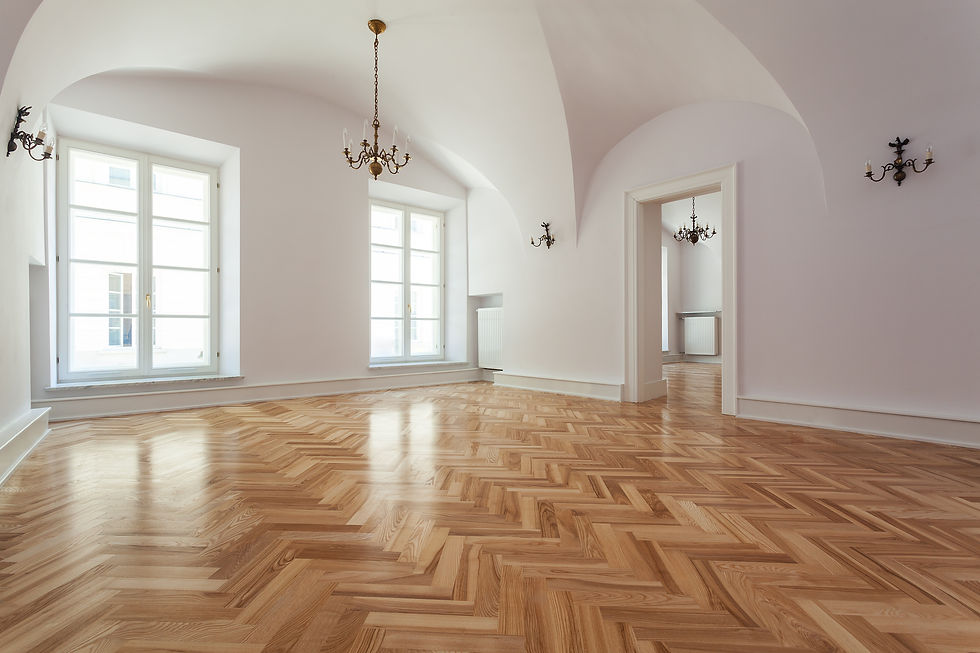Creating Contrast with Your Floor Colors: Light vs. Dark Floors
- Jose Ferrareto
- Jun 9, 2025
- 2 min read
When choosing new floors, color is one of the most important design decisions you’ll make. Whether you go light or dark, your flooring sets the tone for the entire space. Both light and dark floors can create beautiful contrast in your home—but they do it in very different ways.

Light Floors: Bright, Airy, and Spacious
Light-colored floors—think natural oak, whitewashed wood, or pale gray—are perfect for making a space feel open and fresh. They reflect more light, which helps smaller rooms feel bigger and brighter. Light floors pair beautifully with bold or dark furniture, allowing the décor to stand out without overwhelming the space.
Best for:
Small or low-light rooms
Coastal, Scandinavian, or modern styles
Creating a clean, casual vibe
Dark Floors: Bold, Elegant, and Dramatic
Dark floors—like espresso-stained hardwood or deep walnut tones—offer rich contrast and sophistication. They anchor a room and work well in larger or well-lit spaces. Dark floors highlight light-colored walls and furniture, giving a room depth and a sense of drama.
Best for:
Large, open spaces
Traditional, industrial, or contemporary styles
Making a bold, luxurious statement
Tips for Choosing the Right Contrast
Lighting matters: Natural light helps balance dark floors. If your space lacks sunlight, light flooring may be a better choice.
Room size: Light floors can open up tight spaces; dark floors can cozy up larger ones.
Furniture & finishes: Think about what you're pairing your floors with. A light floor and dark furniture create a sharp contrast—and vice versa.
Lifestyle needs: Light floors can show dirt less easily, while dark floors may highlight dust or pet hair.
Find Your Perfect Floor
Whether you're drawn to light and breezy or dark and moody, contrast is key to creating visual interest. Our team can help you find the perfect balance for your space.





Comments